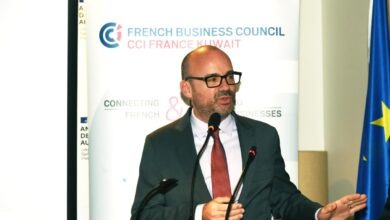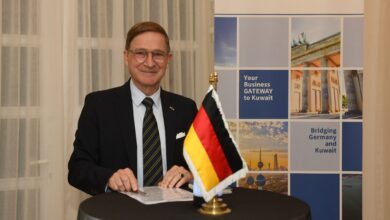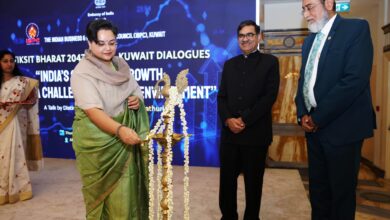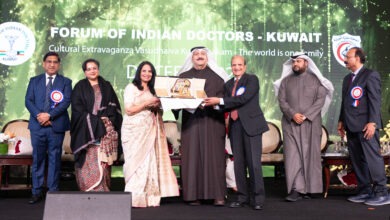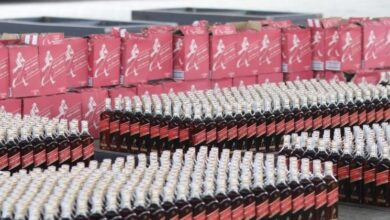‘Kuwait champions moderation and solidarity in foreign policy’
H. E. Awadal-Karim Al-Rayah Balla, the Sudanese ambassador to the country, said Kuwait stands out as one of the few countries worldwide that offer support and aid unconditionally, without a political agenda or interference.
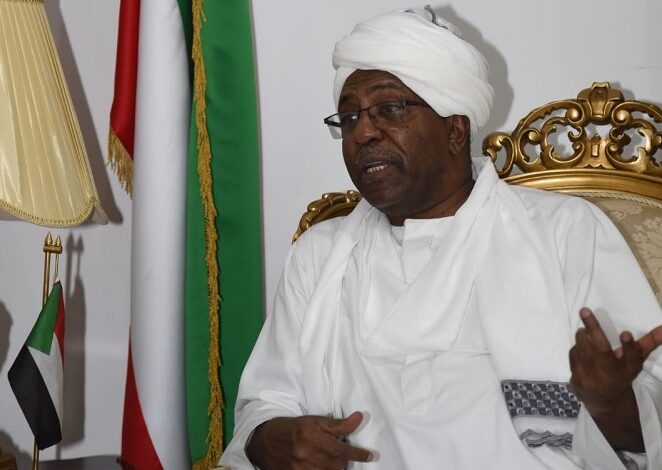
-
Sudan was one of the first countries to recognize Kuwait’s independence and contributed to its consolidation.
-
Kuwait has very large and significant investments in Sudan across various sectors such as agriculture, agricultural processing, animal production, construction projects, and the communications sector.
-
Kuwait is home to about 20,000 Sudanese and their families, with the majority being doctors, university professors, and accountants, along with some workers in agriculture and herding.
His Excellency Awadal-Karim Al-Rayah Balla, the Sudanese ambassador to the country, affirmed that Kuwait’s foreign policy is characterized by moderation and solidarity with its allies. He highlighted Sudan’s appreciation for these principles and its keenness on maintaining strong relations with Kuwait. He noted that Kuwait stands out as one of the few countries worldwide that offer support and aid unconditionally, without a political agenda or interference, making it advantageous for engaging in economic projects and assisting countries in need.
His Excellency stated during a press conference with representatives of local media at his residence, “We have witnessed many conflicts and seen Kuwait’s mediation in them, emphasizing Kuwait’s status as a reconciled country with itself and its surroundings. Therefore, Sudan places great importance on its relations with Kuwait.”
Ambassador Al-Rayah Balla pointed out that Sudan was one of the first countries to recognize Kuwait’s independence and contributed to its consolidation. In return, Kuwait acknowledged this contribution. Additionally, Sudan was the first country to receive a loan from the Kuwait Fund for Arab Economic Development, specifically for the expansion of the railway in Sudan.
Kuwait has significant investments in Sudan
He stated that Kuwait has very large and significant investments in Sudan across various sectors such as agriculture, agricultural processing, animal production, construction projects, and the communications sector. Additionally, there are substantial investments by individuals and companies from Kuwait in Sudan, and the volume of trade exchange before the war reached about 500 million dollars. He highlighted that Kuwait has contributed to large-scale projects that have not only economic but also political dimensions.
He also mentioned that Kuwait is Sudan’s largest creditor outside the Paris Club, with total Kuwaiti debts to Sudan exceeding 15 billion dollars.
The ambassador stated that in 2013, massive development projects took place in Sudan, transforming it from a consumer to an exporter of services such as electricity. This was achieved through the construction of four dams, which increased electricity production and expanded the agricultural area. These efforts helped Sudan move towards achieving Arab food security.
He emphasized that these vital projects were supported by Kuwait without any political agenda, aiming only to strengthen the Arab security system and foster bonds of brotherhood and friendship with Arab countries.
His Excellency pointed out that Kuwait supported the “Jeddah Platform,” which called for the militia to vacate the civilian objects it had occupied. This included hospitals, schools, universities, homes, as well as electricity and water facilities. The platform was proposed after more than 1,000 factories were destroyed, along with universities, museums, and public libraries.
He stressed that after the Sudanese army successfully eliminated a large portion of the Rapid Support during the first month of the war, the Rapid Support turned to occupying civilian objects. He added, “I say it unequivocally: If it weren’t for regional interventions and the involvement of some neighboring countries, this war would have ended in the first month.”
Kuwait home to 20,000 Sudanese
Ambassador Al-Rayah Balla mentioned that Kuwait is home to about 20,000 Sudanese and their families, with the majority being doctors, university professors, and accountants, along with some workers in agriculture and herding. The embassy provides them with all necessary services.
He further added, “We currently have a team of five officers from the Ministry of Interior specialized in passport issues. They arrived about a year and a half ago and in approximately four months, they processed around 3,000 passports. This was possible after rebuilding the new passport factory in the new administrative capital in Port Sudan, following the destruction of the old factory in Khartoum by militias.”
In response to a question about the largest Kuwaiti investments currently affected in Sudan, the ambassador explained, “There is a very large Hilton hotel in the center of Khartoum that is now under the control of militias.
Additionally, the Zain Telecommunications Company suffered significant damage due to the destruction of cables, towers, and stations. I want to commend the company, Zain, because it is one of the few, if not the only one, where thousands of employees continue to receive their full salaries to this day, despite the war continuing for more than a year. Through you, I salute Engineer Badr Al-Kharafi for his humanitarian and noble stance, and for his commitment to keeping the company operational in Sudan despite the immense challenges.”







